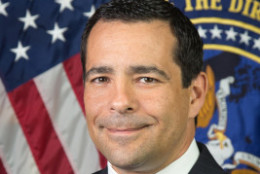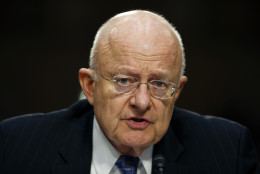Office of the Director of National Intelligence
-
Current and former counterintelligence officials say there is no known evidence so far that a victim of the Office of Personnel Management's cyber breaches has been specifically targeted. Instead, the public's loss of trust in OPM and government as a whole has been the biggest damage done after the breaches.
April 11, 2017 -
Karen Lee, who spent the last seven years in the Office of Management and Budget’s Office of Federal Financial Management, joined the Universal Service Administrative Company as a vice president for rural healthcare.
April 04, 2017 -
Former senator Dan Coats, the nominee to be the next Director of National Intelligence, told the Senate Intelligence Committee the agency’s mission grew over the last 12 years, and he wants to find ways to improve how the entire intelligence community works.
March 01, 2017 -
Bill Evanina, the director of the National Counterintelligence and Security Center and the National Counterintelligence Executive, said the lead agencies reforming the security clearance process made subtle, but important changes to how investigators check employees’ backgrounds.
February 01, 2017 -
Kshemendra Paul, who spent six years as the program manager of the Information Sharing Environment, recently took a new job with the Homeland Security Department as deputy director for Mission and Strategy on the Information Sharing and Services team in the agency’s chief information officer’s office.
January 27, 2017 -
With 85 percent of agencies using smart identity cards to log onto computer networks, they’re starting to look ahead to the next phase of identity management: controlling who gets access to what information, and when.
January 11, 2017 -
President-elect Donald Trump has selected former Indiana Sen. Dan Coats to lead the Office of the Director of National Intelligence, a role that would thrust him into the center of the intelligence community that Trump has publicly challenged, a person with knowledge of the decision said Thursday.
January 06, 2017 -
Federal employees and contractors waited hundreds of days in some cases for a security clearance in 2016, but the Office of Personnel Management spent much of the year putting the policy pieces in place for improvement. Key stakeholders in the Performance Accountability Council developed an IT plan for the new background investigation system and issued business rules for adjudicating some cases.
December 27, 2016 Kerry Long, program manager, IARPA, Office of the Director of National Intelligence, joins host John Gilroy on this week's Federal Tech Talk to discuss the lengths the federal government is taking to foster innovation. December 27, 2016
December 25, 2016-
Director of National Intelligence James Clapper told a House committee Thursday that he will resign following the end of the Obama administration, putting to rest any notion that he might stay on during the early days of President-elect Donald Trump's administration.
November 17, 2016 -
Tonya Ugoretz, the director of the Cyber Threat Intelligence Integration Center, said the CTIIC focused on maturing its three lines of business over the last year and now is ready to expand its efforts.
October 20, 2016 -
Experts say until the government moves to a continuous evaluation program of employees and contractors with clearances, threats from employees will continue to grow.
October 17, 2016 -
Agencies will know later this month how much more they will have to pay for security clearances to the National Background Investigations Bureau. The NBIB will meet initial operating capability on Oct. 1 and begin processing all security clearance cases.
September 07, 2016 -
The intelligence community is building its cloud system around the concept of integration in order to facilitate better data sharing and standardized security.
August 25, 2016 -
Agencies are meeting an administration goal to cut the number of federal employees and contractors who need security clearances for their jobs. But the intelligence community is still struggling to process security clearance investigations more quickly.
June 30, 2016













